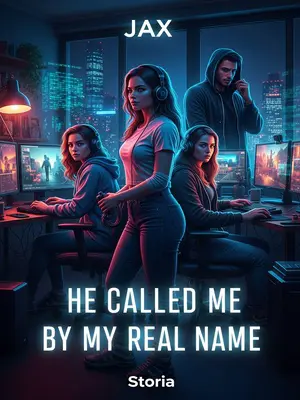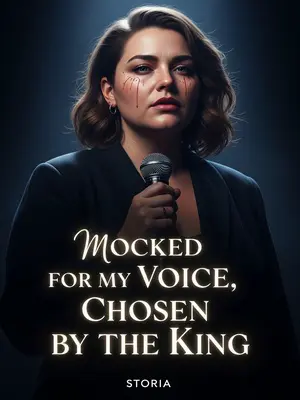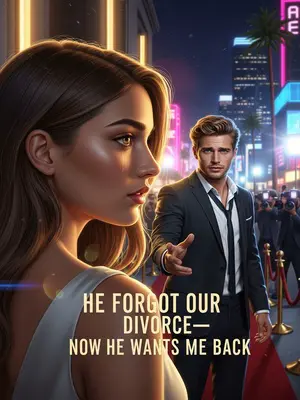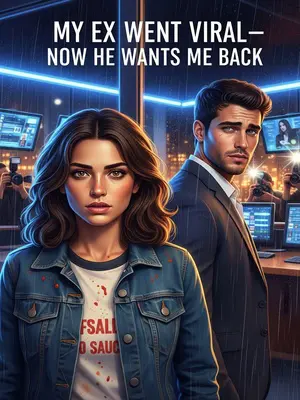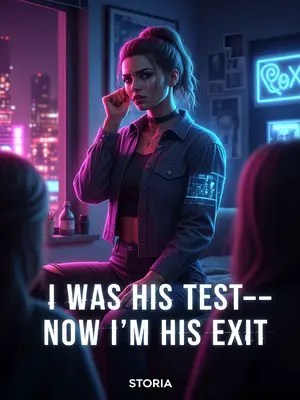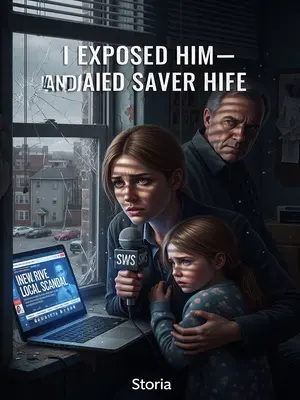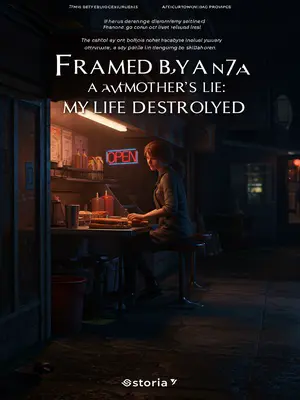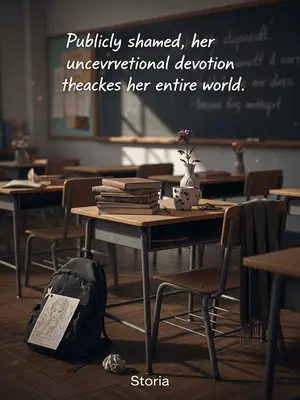Chapter 2: The Night in Alaska
Everything started three years ago, on a trip to Alaska.
I saved a man on the Kenai Peninsula.
When I found him, he was already unconscious. His SUV was crumpled against a jagged outcrop, windshield spiderwebbed, the hood steaming in the cold air.
Alaska’s weather can change in an instant. It was clear at first, then suddenly turned cold. The sky darkened in minutes, the wind picking up with a sharp bite.
Soon, fog rolled in, making everything feel even more desolate. My breath fogged the air as I stumbled toward the wreck, the world closing in around us.
This place was remote—off-season, too.
Other than me, maybe no one else would have driven by. The road was empty for miles, nothing but endless trees and the occasional moose.
My phone had no signal, and I couldn’t call for help. I tried holding it up, waving it around like a desperate antenna, but nothing. Just the empty bars mocking me.
It started to rain—not heavy, but persistent. The kind of rain that soaks into your bones, cold and unrelenting.
I struggled with the car door. My hands slipped on the wet metal, my knuckles raw and aching. I muttered a prayer under my breath, hoping for a miracle.
“Don’t mind me.” He woke up, his voice low.
English, but with a faint accent. It was the first thing that made me pause—his words gentle but distant, like he was used to being alone.
I wiped the rain from my face and looked at him. He looked mixed—part Western, part something else. His eyes were striking, a shade of blue that looked almost unreal in the gloom.
“Try moving your arms and legs. Can you?”
He didn’t answer, just stared ahead expressionlessly. His eyes, as clear as the sea, looked lifeless. There was a heaviness in him, like he was carrying a secret too big for words.
“Hang on, I’ll get you out.”
I tried and tried, but the door wouldn’t budge. My palms burned. I cursed under my breath. Frustration mounting with each failed attempt.
It got darker.
A guy in a pickup drove by, grabbed some tools, pried open the door, and helped me get the man into my car. He smelled faintly of gasoline and old leather, his hands steady and sure as he worked.
His arms and legs were banged up—cuts, bruises, the works. Blood trickled down his temple, staining his collar. He winced but didn’t make a sound, stoic even in pain.
The ER doctor stopped the bleeding and said he’d need to be hospitalized for a few days for observation. The hospital smelled like antiseptic and stale coffee. Linoleum floors echoed with hurried footsteps.
He said softly, “My trip to Alaska is almost over.”
I helped him tuck in the blanket. “Meeting you feels meant to be. I’ll stay with you for a few days, okay?” I tried to keep my tone light, but there was something earnest in my words I couldn’t hide.
He looked at me, opened his mouth, but in the end said nothing. His gaze lingered on me, searching, but he seemed too tired to ask questions.
Back then, I’d just broken up. My boyfriend of many years had married someone else.
The honeymoon fund became my solo travel money—and his medical bills. I’d planned on finding myself in the wild, not patching up a stranger’s wounds.
During my days in Alaska, my American stomach couldn’t take any more greasy diner food, so I bought some groceries to cook for myself. The local supermarket was tiny. Mostly canned goods, a little fresh-caught salmon.
“This is chicken noodle soup I made. Want to try it?”
I took a thermos out of my bag. “It’s fine if you don’t want any.” I shrugged, pretending not to care, but secretly hoping he’d say yes.
He glanced at me, took the thermos. “Pretty good,” he said.
“Your hand’s hurt. Let me feed you.”
He didn’t refuse, just handed me the thermos. There was a vulnerability in the way he accepted help, like he wasn’t used to being cared for.
I remember that day was sunny—even the wind felt a little warm. Sunlight streamed through the hospital window, casting soft patterns on the sheets.
After eating, I chatted with him about the movie ‘The Secret Life of Walter Mitty.’ He listened, then drifted off to sleep, a faint smile on his lips. His breathing slowed, and for a moment, he looked completely at peace.
Looking at his face, a wild thought flashed through my mind. If I had a child with him, they’d definitely be gorgeous.
The day he was discharged, they found his wallet, but the cash was gone. Luckily, his documents were still there. The nurse handed them to me. Her eyes lingered a second too long on his photo ID.
“Someone will pick me up at the end of the month. I’ll pay you back then.”
He handed me his phone. The screen was cracked, a spiderweb of lines running across it.
“Okay.” I took it, looked up at him. “So I’ll keep looking after you?”
That night, we drank on the motel balcony, the distant mountains shrouded in mist. The bottle of red wine was cheap. Still, it tasted like freedom.
I swirled the wine in my glass, a little regretful. “If only we could see the northern lights.”
“Do you really like Alaska?” he asked.
“I used to like it a lot—not so much anymore.” I watched the clouds drift across the sky, the stars barely visible through the haze.
“Autumn, what do you want? I’ll give it to you.”
I looked into his eyes, unable to resist. “I want you.”
He was stunned. After a few seconds of silence, he asked, “Now?”
“You’re still hurt.”
“It’s fine. I can.”
He leaned in and kissed me. The world faded away—just the two of us, suspended in the cold Alaskan night.
I figured I’d probably never get married. If I could have a child, that’d be enough—a child as beautiful as Carter Reed.
After that, we watched the mountains together during the day, sometimes in silence, just leaning into the deepening Alaskan cold. There was a comfort in the quiet, in the simple act of being together.
At night, he held me. We shared each other’s warmth. The motel heater clanked and sputtered, but we barely noticed.
At the final moment, he panted in my ear, “Do you love me?”
I wrapped my arms around his neck, holding him as close as I could.
My mind was blank. I answered softly, “Mm.”
In the dark, I felt him smile and kiss my forehead. His lips were gentle, lingering just a moment longer than necessary.
The morning I left, he was still asleep.
I glanced at the pregnancy test, put it in my bag, and left all my cash by the bed—as compensation. It felt transactional. But honestly, I didn’t know what else to do. I told myself it was closure.
After that day, we’d be thousands of miles apart.
I closed the door gently. The wind outside was strong. It whipped at my jacket, reminding me that I was on my own again.
“Goodbye.”

